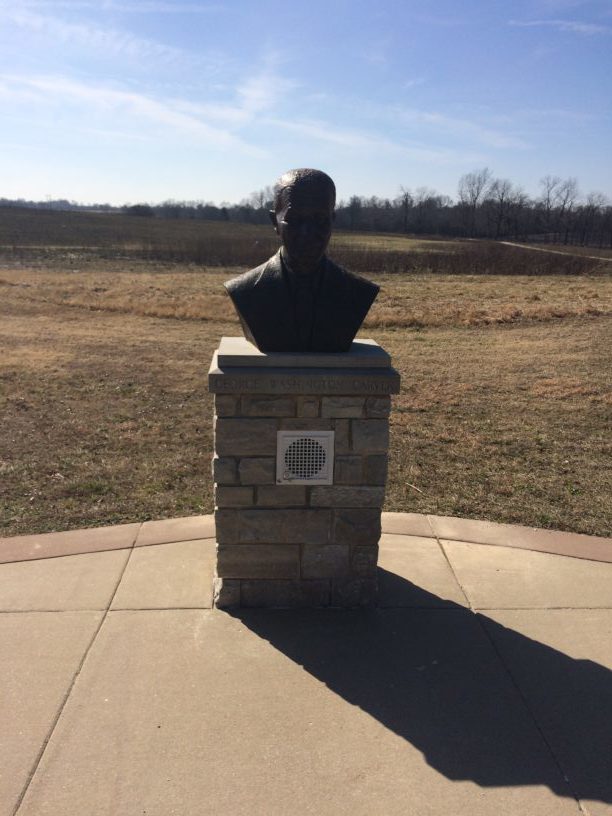News
Carving a Place in History

The unexpectedly warm winter day hosted a young family from northwest Arkansas looking for a venue where they could celebrate Black History Month. Michael Henderson, his wife, and their two sons chose the George Washington Carver National Monument in Diamond, Missouri, a small town positioned between Kansas City and Joplin for their observance.
“I have always been inspired by Dr. Carver,” said Henderson. He recalled visiting the site when he was child, an experience he wanted to share with his young sons.
The monument to George Washington Carver, scientist and inventor, spans acres of farmland once owned by a plantation owner and his wife, Moses and Susan Carver. The Carvers raised the child after a group of white men kidnapped an infant Carver, his mother, and his sister. Carver hired a man to find them, but only the baby was found, left in a field by the kidnappers.
The cabin where Carver was born sits on the grounds of the monument. Despite the racial violence that robbed Carver of his mother, Mary, and his innocence, the air of calm surrounding the area today seems to hold the past at a distance.
An illustrator by profession, Henderson marveled at the accomplishments of the man he admired. “Barriers didn’t hold him back. To look at what he did during that period, amazed me,” he said.
In 1943 President Franklin Delano Roosevelt signed legislation funding the George Washington Carver monument. Congress had “overwhelmingly approved the bill” for the monument at a time when the nation was deeply entrenched in World War II and bitterly divided by race. At that point, only two national parks recognized outstanding Americans, the birthplaces of George Washington and Abraham Lincoln.
A kiosk at the national monument quotes Richard Pilant, a radio broadcaster and advocate for the Carver monument:
“In a world aflame with war and every species of hatred, no name can evoke greater goodwill than that of Dr. George Washington Carver of Tuskegee…a man whose whole life has been dedicated to…all mankind…Dr. Carver has lived to make men free, free from poverty…clearly he has seen how millions starve to death in a world that could live in peace and plenty on what it throws away.”
Carver spent many years in the Midwest. He attended Iowa State University where he earned a Master’s degree, but he ventured south to Alabama to join the faculty at Tuskegee Institute after University President, Booker T. Washington, issued an invitation. Credited with devising more than 300 uses for the peanut, Carver reportedly said, “It has always been the one ideal of my life to be the greatest good to the greatest number of ‘my people’ possible. This line of education is the key to unlock the golden door of freedom to our people.”
Other quotes from one of the most celebrated African Americans are etched on marble slabs dotting the grounds of the national monument built in his honor.

-

 Featured10 months ago
Featured10 months agoCalifornia Is the First State to Create A Public Alert for Missing Black Youth
-

 Featured10 months ago
Featured10 months agoAfrican American Leaders Stay the Course Amid Calls for President Biden To Bow Out of Race
-

 Featured10 months ago
Featured10 months agoThe Debate Fallout Lands on Both Candidates
-

 Featured9 months ago
Featured9 months agoPresident Joe Biden Decides to Withdraw from the Presidential Race
-

 Featured9 months ago
Featured9 months agoIn One of His Final Speeches as President, Biden Says It’s Time for ‘Fresh Voices’
-

 Featured9 months ago
Featured9 months agoPresident Joe Biden Describes Shooting of Donald Trump As ‘Sick’









